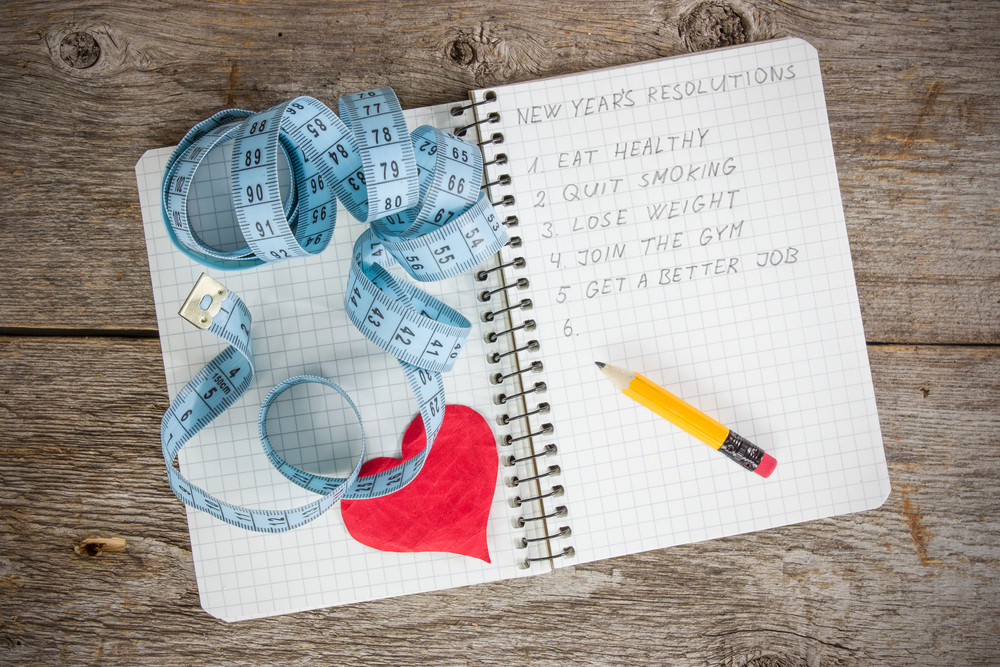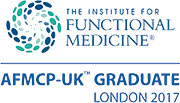New Year's Resolutions? Really?
Dec 23, 2018
Posted by: Monique Parker

Christmas has been and gone and we’re on the doorstep of 2019, a new year, new beginnings.
A lot of people have great plans to get healthier after their indulgence over the festive season.
According to an article in The Guardian[i] 32% of people in the UK planned a New Year’s resolution in 2016, of which 35% wanted to lose weight, 33% wanted to get fitter and 31% wanted to eat more healthily. If only they could stick to their plans…. 63% of the adults in the UK who made New Year’s resolutions failed to keep them.
I won’t bore you with more figures. What is more interesting is the WHY of it all. Why can’t so many people stick to their resolutions?
According to Dr Mark Griffiths, a professor of Behavioural Addiction at Nottingham Trent University, the main reason that people don’t stick to their resolutions is that they want to do too much at the same time or the goals are unrealistic to achieve.[ii] Resolutions are generally lifestyle changes like eating healthier, quitting smoking or going to the gym, and that involves changing behaviour which can be difficult to do.
Please don’t get me wrong, I applaud everyone who has plans to make healthy changes in the New Year, but in my view every day is a new beginning and it doesn't have to be the 1st of January. So, instead of the New Year’s resolution, why not just decide to change your thoughts about your health? How do you feel at the moment? How would you like to feel? How will you be able to achieve this? And will the path to optimal health be one that is achievable?
Over the next couple of days social media will probably inundate you with all sorts of crash-diets, detox programmes, miracle supplements etc. to help those New Year’s resolutions to lose weight and be healthier. And this is where my worries start….
Crash diets might work very short-term but they could make you ill too. Most crash diets are nutritionally imbalanced and you could miss out on vital vitamins and minerals that are needed for overall health. Calorie intake is generally very restricted which initially will make you lose weight, but most of this is water and muscles. When you get less energy from lower calorie intake, the body starts using energy that is stored in your liver and muscles. When this happens, your body reacts by burning calories less fast, so weight loss is actually slowing down.
The other problem is that the macro-nutrients (protein, fat and carbohydrates) in crash diets are often imbalanced, i.e. very low fat or very high protein intake.
So, whenever you decide to improve your health, on the 1st of January or any day after that, this is my advice:
- Decide what you actually would like to change and be realistic. For example, weight that was put on over a year doesn’t disappear within a couple of weeks.
- Set a specific goal to motivate yourself. For example, if you’re overweight, buy a dress or a pair of trousers that is one size too small and work towards that.
- Do one thing at the time. For example, planning to quit smoking and wanting to lose weight at the same time will not be a good combination as people who stop smoking generally put on weight.
- Don’t be disheartened if you have a bad day and you fall for that chocolate or glass of wine, just start again the next day and don’t beat yourself up about it. We’re all human.
- Find someone to either work with you or support you. Don’t forget it is all about changing your lifestyle and this means changing your behaviour. If the family or your friends don’t support you, it could be difficult to persevere. And, making healthy changes will be good for the others too!
- Forget the fad diets and extreme detox programmes, small steps will have better long-term results and you will feel a lot better.
- Never forget that everyone is different, so what might work for you, might not work for someone else. If you need any help achieving your goal, I’m available for support.
- Nutrition & Lifestyle -wise I would recommend
- Always eat protein with your meal or snack
- Focus on whole foods; substitute refined foods with wholegrain
- Minimum of 7 portions of fresh vegetables and fruit per day (fruit max 2-3)
- Eat fibre-rich foods such as legumes, oats, fruit, vegetables etc. daily
- Drink 1 ½ - 2 litres of filtered water per day
- Be sure to eat good fats every day:
-oily fish (sardines, mackerel, anchovies, salmon, herring)
-nuts and seeds
-coconut oil, olive oil, ghee, organic butter
- Exercise at least 3 times a week for 30 minutes – 1 hour
- Make sure you sleep well
- Manage stress as best as you can
A healthy and happy 2019 and good luck to all of you who would like to improve their health. You can do it! And if you need any help, you know where to find me.






